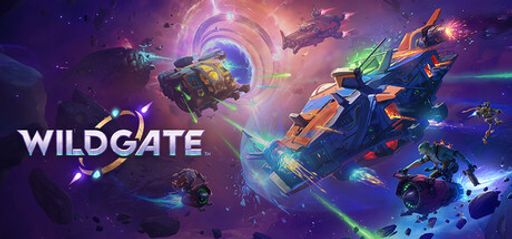After clocking in dozens of matches of Wildgate, I’m ready to break down Moonshot Games’ newest PVP shooter. Wildgate blends tactical ship-to-ship combat with fast-paced on-foot action, and at its best it delivers thrilling life-or-death moments. But a few design choices keep it from truly soaring. Here’s my full take.
Overall Impressions
Wildgate’s core hook feels fresh in today’s crowded shooter space. Competing crews racing to claim a powerful Artifact and escape through a deadly wormhole. The mix of environmental hazards, looting for weapons and upgrades, and the constant threat of enemy boarding creates genuine tension. I’ve faced match-ending explosions, last-second teleports, and heart-pounding ambushes that few other games in the genre match.
That said, Wildgate reminds me at times of Evolve: wildly fun in short bursts, yet threatened by questionable monetization and balance issues. It isn’t quite the knockout punch that some multiplayer shooters deliver, but if you love high-risk PvP, it’s worth your attention while Moonshot refines its systems.
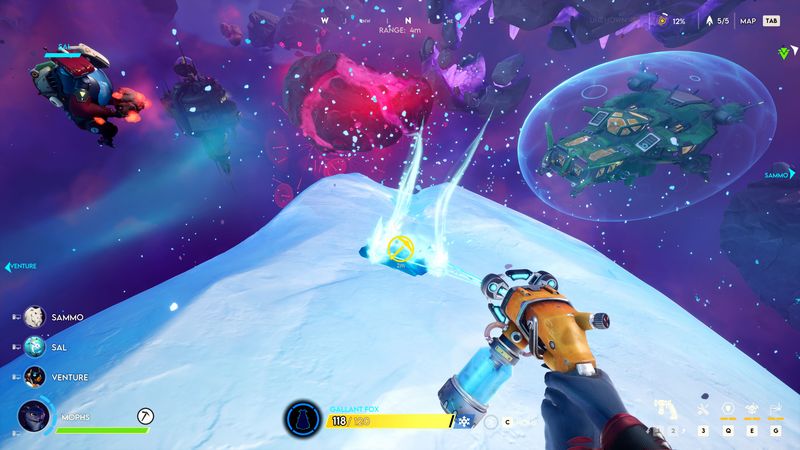
Gameplay Mechanics
Wildgate excels in dynamic combat, both on the high seas and on foot. Coordinating with teammates to power shields, aim cannons, and foil enemy boarding parties delivers a deeply satisfying strategic layer. Meanwhile, running through corridors to scavenge gear and pull off surprise takedowns keeps solo play fresh and engaging. The intuitive tutorial eases you in, so you’ll master the core mechanics within your first few matches and stay hooked.
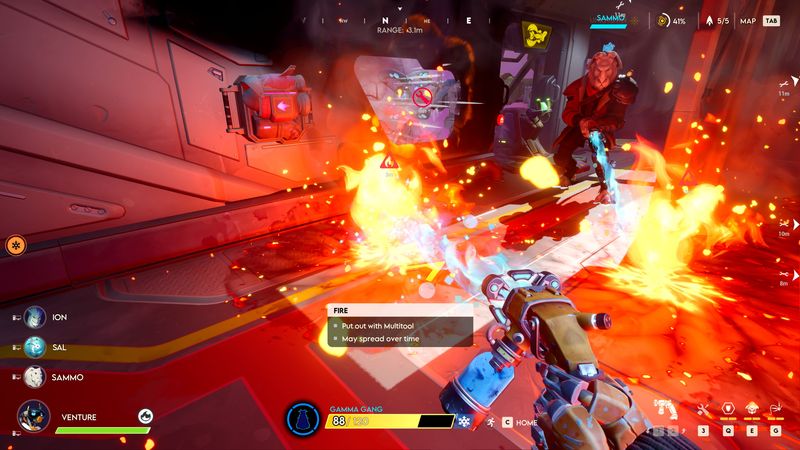
However, certain design choices undermine tension. The teleportation system allows players to blink mid-combat with near impunity, enabling instant one-shots that overshadow strategic ship battles. Likewise, locking cosmetics behind a costly virtual currency feels exploitative, contradicting the “by gamers, for gamers” promise. Until teleport cooldowns or distance limits are tightened and pricing becomes more transparent, high-risk plays lack meaningful penalty and may alienate the core audience.
A standout moment encapsulates Wildgate’s potential: during one match, my gunner and I held off two boarding waves while our engineer patched shields. We ejected with the Artifact just as our hull gave way, clinching victory by the skin of our teeth. Those split-second choices—balancing aggression, defense, and timing—highlight why, when everything clicks, Wildgate shines brightest.
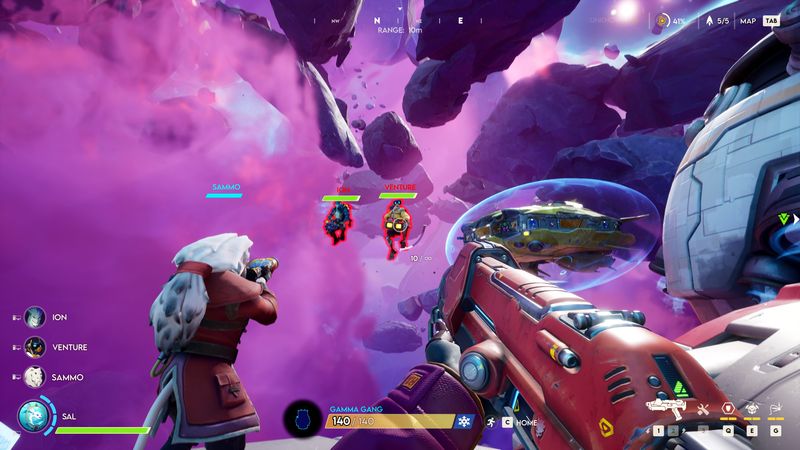
Story and Characters
Wildgate’s narrative is light: you’re all spacefarers chasing alien relics. There’s no deep campaign or lore dumps, but the world-building seeps through environmental cues. Stranded cargo pods, derelict hulks, and cryptic logs suggest a universe on the brink of collapse. Character customizations let you build your own pirate persona, but the game offers little in the way of voiced characters or personal arcs. If you want story-driven drama, look elsewhere. For a pure PVP thrill ride, the hint of backstory is enough.
Visuals and Graphics
Moonshot leverages Dreamhaven’s resources to deliver a clean, colorful style. Ship interiors glow with neon piping, and dusty asteroid belts loom beyond cracked portholes. Animations are smooth, and the particle effects during explosions are crisp without becoming distracting. On lower-end systems, you might notice some texture pop-ins in massive firefights, but overall the performance is stable. The artistic direction strikes a nice balance between gritty sci-fi and approachable arcade action.
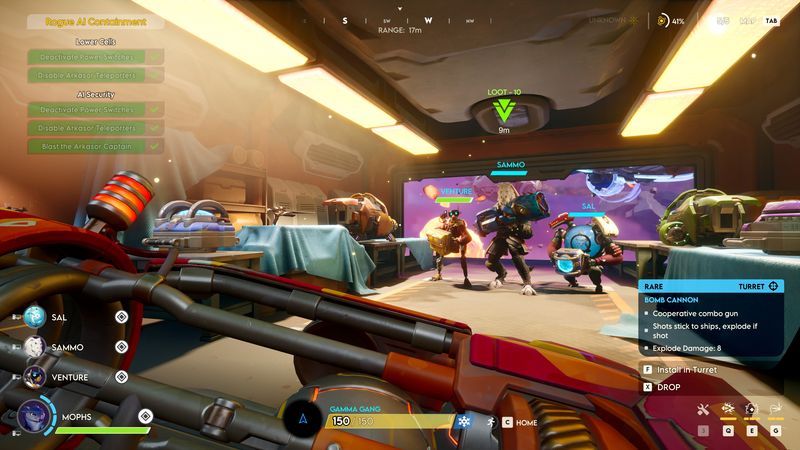
Sound and Music
The soundtrack pulses with driving beats during combat and shifts to eerie synth notes when you explore abandoned stations. Weapon blasts hit hard, and I appreciate the audio cues that let you know when an enemy is charging a teleport. Voice lines are limited—mostly one-liners during kills or objectives—but they’re delivered with energy and avoid feeling repetitive. Sound design here enhances the tension without ever overwhelming your headset.
Difficulty and Replayability
Matches typically last 10–15 minutes, which feels just right. Early on, the game is forgiving: you respawn, regroup, and try again. But as you climb in skill, one well-timed boarding action or a lucky cannon shot can turn the tide in seconds. That high ceiling keeps me coming back.
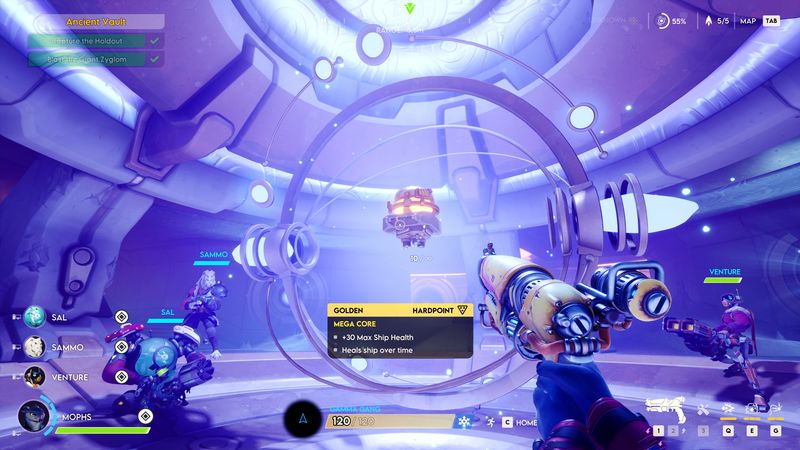
Replayability is strong thanks to random map layouts, shifting hazards (electrical storms, lava jets, gravity anomalies), and a growing roster of weapons and ship upgrades. However, if teleport abuse continues unaddressed, the long-term competitive scene could stagnate around boarding-centric builds. My advice: Moonshot should push a key rebalance update within the next few months to preserve that hard-earned variety.
Developer Trivia and Behind-the-Scenes
Moonshot Games formed from several ex-Blizzard engineers who worked on competitive modes in Overwatch and Team Fortress. They’ve said in interviews that they wanted to combine the “tight gunplay of a shooter” with the “grand scale of a naval battle.” Dreamhaven’s backing gave them the freedom to experiment—but also put pressure on monetization to fund ongoing updates. The team is reportedly monitoring community feedback closely, so expect tweaks to teleport cooldowns and balance patches in the weeks ahead.
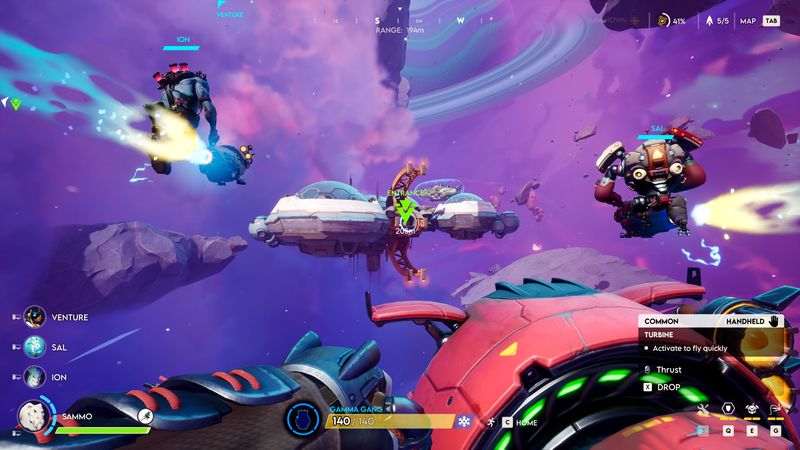
Final Thoughts
Wildgate is a high-skill, high-risk shooter that rewards teamwork and quick thinking. Its blend of ship combat and boarding raids delivers unforgettable moments—when the balance is right. Teleport loopholes and heavy-handed cosmetics sting the experience, but the core gameplay is solid. If you crave intense PvP and Moonshot follows through on promised fixes, Wildgate could become a staple for competitive crews. For now, it’s a promising journey that needs a few course corrections before truly taking flight.
Rating: 3.5 out of 5 stars

